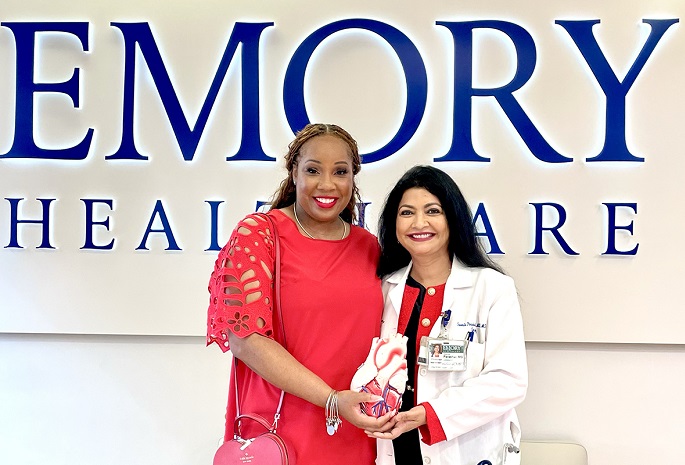According to the American Heart Association, heart disease is the number one killer of women and is more deadly than all forms of cancer combined. It is also preventable. The Emory Women’s Heart Center is a program dedicated to the screening, prevention and treatment of heart disease in women.
The number of women at risk is startling. “Believe it or not, a very small percentage of women fall into the low risk category for heart disease, and those people are mostly in their twenties,” says Stacy Jaskwhich, a nurse practitioner at Emory’s Johns Creek’s Women’s Heart Center. “When you consider family history, age, diet, activity levels and other existing conditions such as diabetes or rheumatoid arthritis, most women are at some level of risk.”
“Most heart disease is preventable, so we want to reach these women, ideally between the ages of 40-60, to evaluate their individual risks and educate them on risk reduction. Starting treatment early, when it’s necessary, will help save lives,” says Gina Lundberg, MD, clinical director of Emory Women’s Heart Center and assistant professor of medicine, Emory University School of Medicine. Dr. Lundberg founded Georgia’s first women’s cardiac prevention program in 1998. She also launched the Emory Saint Joseph’s Heart Center for Women in 2007.





